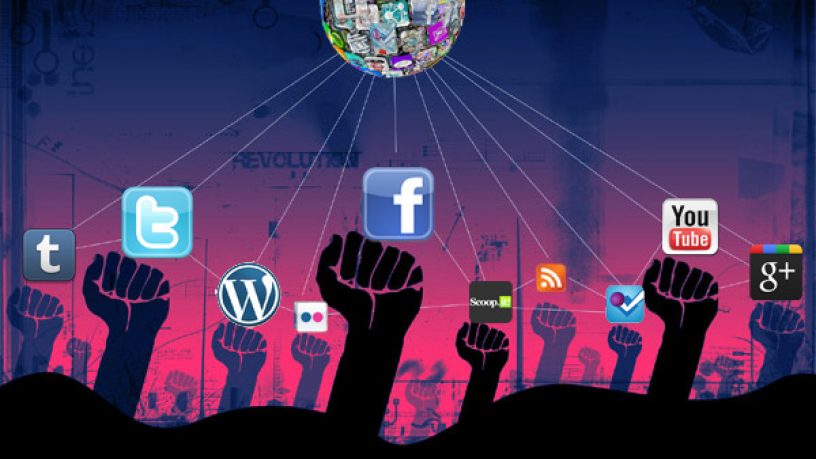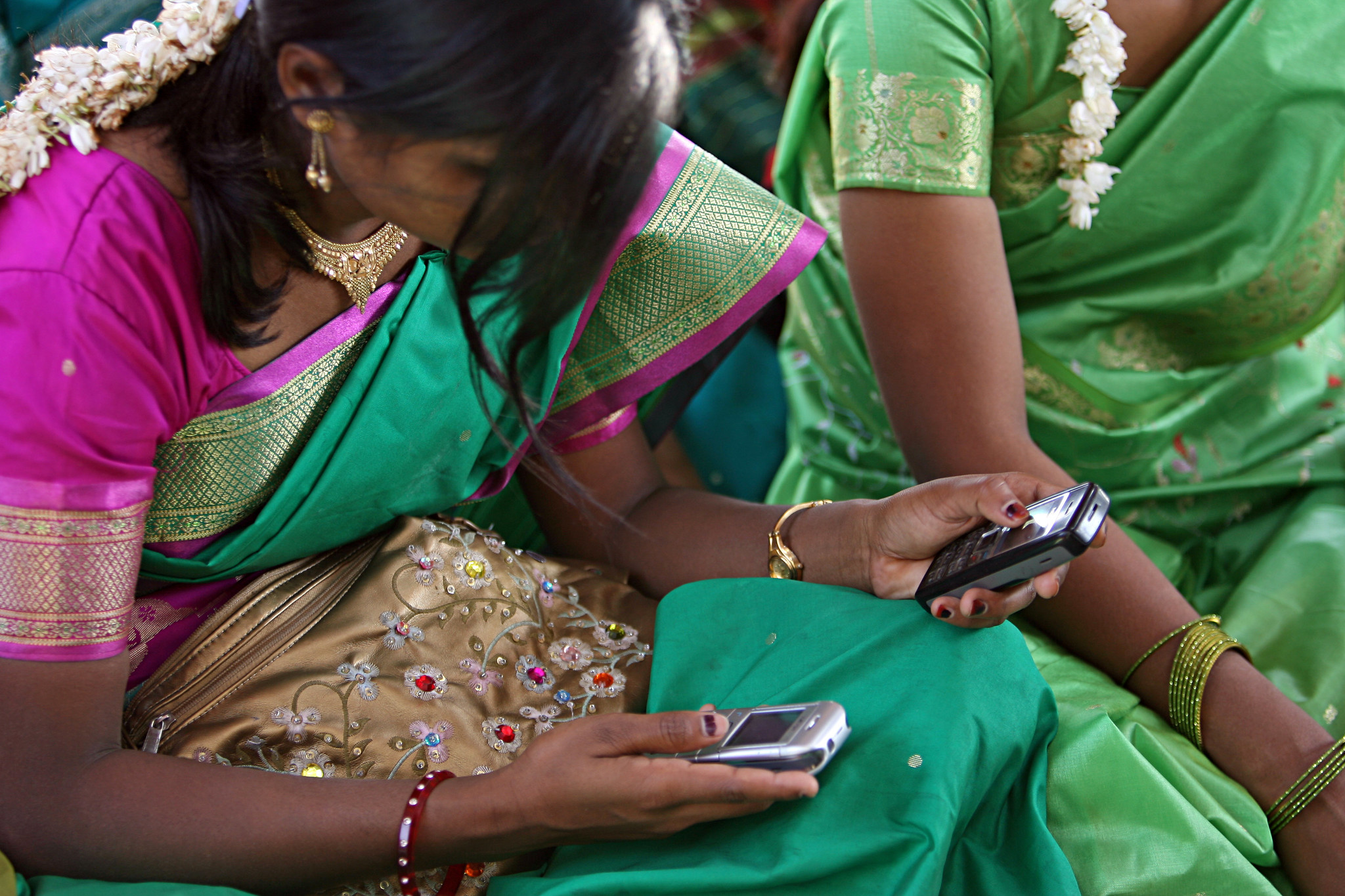Many discourses on contemporary feminist issues begin and take place on the internet. In the past few years, social media has been a home to various movements that continue to shape the course of contemporary feminism. Through the use of technology as a powerful tool of resistance and activism, women and persons of other marginalized genders continue to help contemporary feminism evolve into a more inclusive, multi-dimensional, and pro-intersectional movement. I know most of what I know about socio-political issues, gender and sexuality, and pro-intersectional politics because of other people’s digital feminist activism.
The power of hashtags is undeniable. A remarkable example is the #metoo movement, which enables survivors of marginalized genders to hold their perpetrators accountable for sexual abuse and is nothing short of a revolution. Women began documenting their act of loitering on the streets, a radical act for most women in India, using #whyloiter as part of the movement to reclaim public places. The Pinjra Tod (#pinjratod) movement that resists restrictive and oppressive hostel accommodation policies for women students started significant conversations around the issue when it evolved into a social media movement. The 12% tax on sanitary napkins in India was scrapped after a series of campaigns including #LahuKaLagaan, which sought to remove the “period tax”. #WhyIMarch trended on social media as part of the historical Aurat March, a Pakistani women’s movement against gender-based violence and harassment at home, public places, and workplaces.
Despite the change that online feminist activism is capable of bringing about today, digital activists often have to face invalidation because many still perceive online activism as less valid or inadequate. Online activists are often told that they are not real activists if they do not engage in groundwork. Digital activism is often called “slacktivism” and online activists “keyboard warriors”. Such worldview is exclusionary and ableist. For movements to grow, it is important to work towards alleviating barriers to free expression by seeking to create an inclusive environment for persons of different socio-economic and cultural settings and abilities. Social media offers accessibility and scope for such inclusion.
Through the use of technology as a powerful tool of resistance and activism, women and persons of other marginalized genders continue to help contemporary feminism evolve into a more inclusive, multi-dimensional, and pro-intersectional movement.
Digital discourses around disabled persons’ liberation, expressions, and equality are thriving on the internet. Many disabled persons around the world are reclaiming their spaces digitally by speaking on social media, which is more accessible and safer for them than many other agencies in an ableist world. While Skin Stories by Point of View publishes stories at the intersection of disability and sexuality, Disabled Vegan writes powerful social media content at the intersections of disability advocacy, food justice, feminism, and animal liberation.
Many closeted queer people find it safer to share their political and personal expressions on social media as well. Shortly after I started The Visibility Campaign on Facebook, with the view to amplify voices of queer persons, I began receiving requests from LGBTQIA+ people who wished to share their stories but wanted to remain anonymous. These individuals are real. Their worldviews, politics, ideologies, and activisms are real. We must acknowledge and understand that “digitality” does not erode the reality of politics. On the contrary, digitality strengthens movements because no other platform enables flow of information as fast and as widely as the internet does.
Also read: Watch: How Can Women & Non-Binary People Combat Online Violence? | #DigitalHifazat
All activisms are real, and so is cyber bullying. People who express their feminist politics online, especially women and people of other marginalized genders, face a multitude of threats, from trolling and privacy breach to personal attacks through memes and rape threats. Many instances of abuse are more prevalent online than offline because often, people find it easier to harm others digitally than in person. Unfortunately, there is not much talk around the devastating impact that online harassment can have on the mental health of digital activists. Many survivors who called out their perpetrators for sexual violence in the #metoo movement were relentlessly victim-blamed and mentally harassed, which only added to their traumas. There is an urgent need to make online spaces safe for digital activists and to visibilize conversations around the issue.
Cyber bullying amounts to harassment, which is a criminal offense in India. You may report instances of online harassment to complaint-mwcd@gov.in. You may register a complaint with the cyber cell. If you do not have access to the cyber cell, you may register an FIR with the nearest police station. If the police refuse to register an FIR or take action, you may file a complaint with the Commissioner or the local Judicial Magistrate. In case of further inaction, you may write to the State and National Human Rights Commissions. You may also write to the State and National Women’s Commissions. Indian laws still have a long way to go in expressly recognizing different kinds of online abuse. Often, the police and other state machinery refuse to take cyber bullying complaints seriously. If you are harassed online, you may also take the help of pro-rights media to hold your perpetrators accountable.
Despite the change that online feminist activism is capable of bringing about today, digital activists often have to face invalidation because many still perceive online activism as less valid or inadequate.
There are activists with social anxiety, activists who cannot afford the time or do not have the agency to engage in street activism, activists who find it safer to express their politics online, and activists who express better through writing or art.
Many activist spaces expect others to restrict their politics and activisms to parameters that they do not choose for themselves. Shaming digital activists or making them feel that they are not doing “enough” is extremely condescending. Such culture runs contrary to politics of liberation and resistance. Expecting everyone to take to the streets to protest is arbitrary and may even discourage people from expressing their politics.
Also read: How The Digital World Disparages Feminism Through Manufactured Outrage
It is important to encourage digital activism within our feminist circles and create an environment where people do not hesitate to choose their preferred mode of expression. If you are a social media warrior, you are doing “enough”. Go on, as the fact remains that regardless of how you choose to engage in activism, you are working towards bringing about change because you care for a better world.
Featured Image Source: RTRFM
About the author(s)
Debarati is a queer feminist lawyer and musician always learning to be pro-intersectional in her politics.




